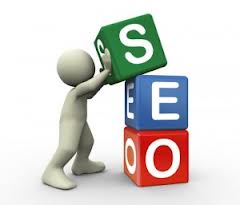 Are you implementing solid on-page SEO on your web pages? In this article, we will take a look at the importance of on-page SEO, the most common on-page SEO mistake, and how you can ensure that you choose your keywords wisely so that your pages get found by the search engines.
Are you implementing solid on-page SEO on your web pages? In this article, we will take a look at the importance of on-page SEO, the most common on-page SEO mistake, and how you can ensure that you choose your keywords wisely so that your pages get found by the search engines.
The Importance of On-Page Search Engine Optimization
I have heard a few people muse: “On-page SEO is dead. Quality content is now what it’s all about.”
The second part of this quote is entirely accurate while the first part is entirely inaccurate. In fact, if you create quality content without any consideration for on-page SEO, there is a good chance that your quality content is never found by the search engines.
Quality content and on-page SEO are not mutually exclusive. They can and must co-exist.
To understand this, you must understand how web pages are “discovered” by Google and other search engines. The system is flawed, but it’s all we’ve got.
Ideally, there would be a “human-powered” search engine where groups of subject matter experts sit down and agree on the top ten web pages on every different topic. I’ve often wondered if this is a doable concept but the manpower required would be extraordinary.
No, search engine results are not determined by people but by “bots”. These bots determine the content of your web page by parsing through it and looking for keywords, especially keywords in prominent places, like the title of the page, the meta-description of the page, the headings, the words that you have put in boldface, etc. For more on these specifics, we welcome you download our 14 Page White Paper entitled “On-Page SEO: How To Implement On Page Search Engine Optimization To Achieve The Best Search Engine Results“.
Let me ask you this: Do you really want to spend your time creating quality content that nobody reads? This can be a debilitating enterprise.
Obviously not! You want to create quality content that people that generates lots of visitors from the search engines. To do this, you must implement great on-page SEO.
The Most Common On-Page SEO Mistake
Before going any further with this concept, let me tell you the first mistake that individuals and companies often make: they optimize for the wrong keywords.
Let us take a hypothetical situation. A gentlemen by the name of Bob McMahon is starting an office security consulting firm in St. Louis. The name of the firm will be McMahon Security Consulting. The biggest mistake that Bob makes is to spend all of his time optimizing for the term “McMahon Security Consulting”.
I see well over 50% of websites commit this error. For example, in the title of the page, a website such as this just has their company name with no mention of what they do. Companies too often optimize for “who they are” when should be optimizing for “what they do”.
Why is that a problem? Well, of course Bob wants to be in the top spot for the search term “McMahon Security Consulting” so people will be able to find his website. So, what’s the problem?
The problem is that nobody searches for the term McMahon Security Consulting!
On-Page SEO: The First “Keyword” To Search Engine Traffic
You have to create web pages that are optimized for terms that people actually use when searching.
How do you find words and phrases for which people are searching? You use a healthy blend of common sense and technology.
In Bob’s case, we might use our common sense to conclude that Bob should optimize for terms such as “office security, office security St. Louis, business security, security consulting St. Louis, security for my office, employee security, office camera security, protect my office, etc.”.
Was our common sense, our intuition, correct?
After accumulating what we think might be common search phrases, we want to use technology to verify and augment our ideas. There are technologies out there that accumulate data on “search terms”.
Two such technologies that we recommend are WordTracker (get a free 7 day trial) and the Google Keyword Tool from Google Adwords. A combination of these two tools will help you narrow down keywords and phrases related to your product or service for which people are actually searching.
On-Page SEO: The Three Keyword Points From This Article
In conclusion, we want you to take away three essential points from this article.
- On-Page SEO is vitally important if you want to get good search engine results.
- On-Page SEO and “quality content” are complimentary not mutually exclusive.
- You must optimize your web pages for keywords that people use when searching.
If you keep these 3 concepts in mind, you will receive many more hits from the search engines!
- The Personal Assistant Pivot: Optimizing for AI Search and AEO in 2026 - February 22, 2026
- The Ultimate Guide to Dental SEO: How to Rank Higher & Attract More Patients - March 10, 2025
- Indexing Requests Currently Suspended [Google Search Console] - October 21, 2020
